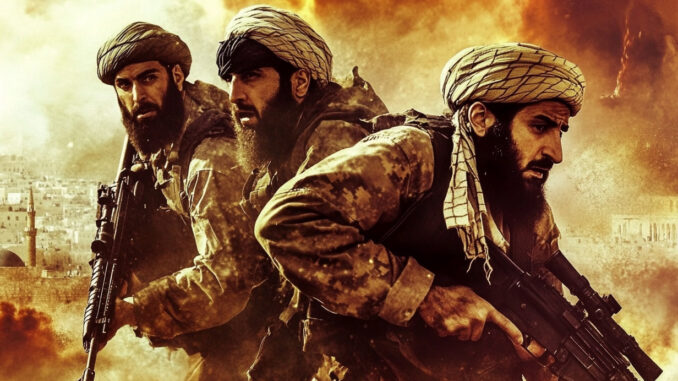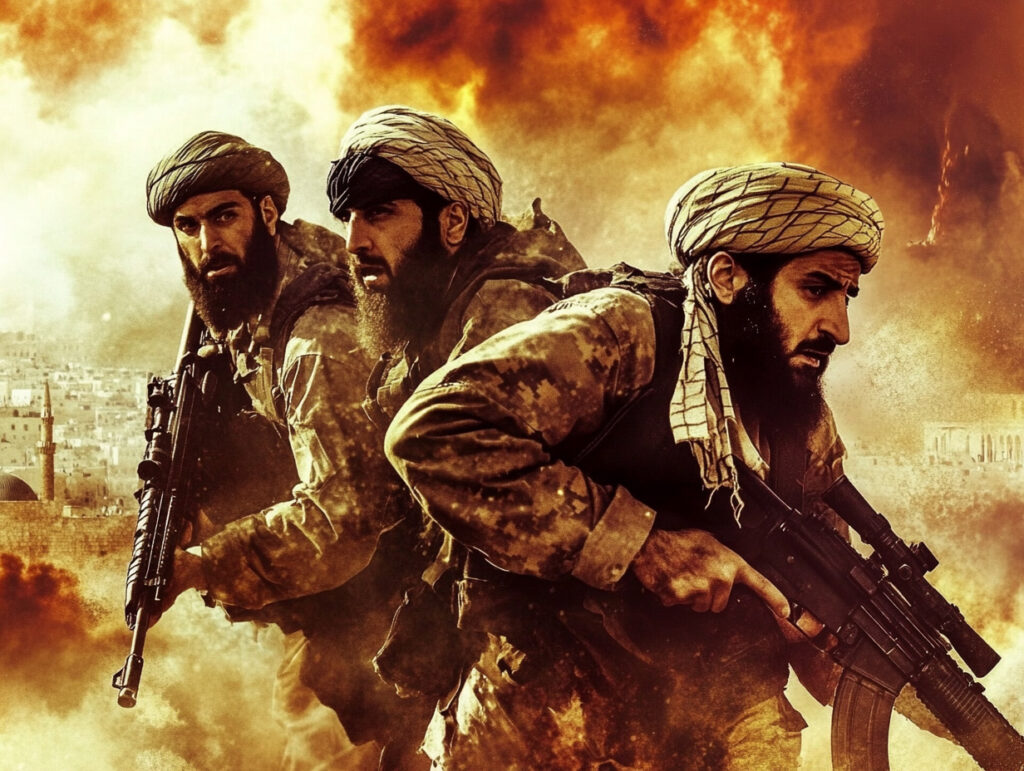
A technical analysis of the implications of an Iranian attack on Israel and the risks of the Israeli-Palestinian conflict flaring up.
The escalation of the Israeli-Palestinian conflict could potentially lead to Iran taking military action against Israel. Such a scenario would have major strategic and military consequences, not only for the Middle East region but also for global stability. This article examines the military capabilities of the two countries, the potential theatres of operation, and the consequences of an open war between Israel and Iran. It also explores the implications for regional and international players, as well as the possible scenarios in the event of the conflict flaring up.
Israel’s and Iran’s military capabilities: a technical comparison
Israel and Iran have significant military capabilities, although their armed forces are structured differently. Israel has a technologically advanced army that benefits from external support, particularly from the United States, while Iran relies on a strategy of asymmetric warfare and regional influence via paramilitary groups.
The Israeli army (IDF) is equipped with cutting-edge technology, including the Iron Dome missile defence system, designed to intercept short-range rockets and missiles. In addition, the Arrow system intercepts ballistic missiles, while the David’s Sling system targets medium-range threats. These systems are essential to counter a potential attack from Iran, which has a vast arsenal of ballistic missiles, including the Shahab-3, capable of hitting Israel from a distance of more than 1,300 km.
In terms of air forces, the Israeli Air Force (IAF) has around 600 fighter jets, including the F-35I Adir, modified versions of the F-35 offering stealth and precision strike capabilities. Iran, on the other hand, has an older air force, with combat aircraft dating mainly from the 1970s and 1980s, such as the F-14 Tomcat. However, Iran makes up for this disadvantage with a strong drone capability, which it uses for reconnaissance and attack missions, as well as its ballistic missile forces.
If an Iranian attack were to materialise, Israel’s defences would be put to the test, but the country could retaliate with overwhelming force, including potentially pre-emptive or retaliatory strikes against Iranian military installations.
Possible theatres of operation
An open conflict between Israel and Iran would not be limited to the territories of the two nations. The theatre of operations would probably extend beyond that, involving regional players and affecting strategic points throughout the Middle East.
One of the first battlefields would probably be Syria, where Iranian and Israeli forces have already clashed indirectly. Iran supports the Syrian regime of Bashar al-Assad and uses Syria as a base for its military operations against Israel. Israeli strikes have already targeted Iranian positions in Syria, and an open war would see these actions intensify.
Lebanon is another critical theatre, mainly because of the presence of Hezbollah, an Iranian-backed militia. Hezbollah has an arsenal estimated at over 100,000 rockets and missiles, capable of striking all of Israeli territory. In the event of a conflict with Iran, Israel would also have to deal with this threat in the north, requiring a massive mobilisation of its ground and air forces to neutralise the rocket launchers.
The Strait of Hormuz, through which some 20% of the world’s oil transits, would also be a major point of tension. Iran has repeatedly threatened to close this strategic passage in the event of war. Such action would have global economic consequences, disrupting oil flows and causing energy prices to soar.
Finally, Iraq could become another theatre of operations, due to the presence of pro-Iranian militias which could attack American and allied bases in the country, thus extending the conflict and directly involving the United States and other Western powers.

Regional and international consequences
The implications of an armed conflict between Israel and Iran would be profound, both regionally and internationally. The Middle East, which is already unstable, would probably see an exacerbation of sectarian tensions and an increase in armed conflicts.
Regionally, the Gulf States would be particularly vulnerable. Saudi Arabia, Iran’s regional rival, could be drawn into the conflict, either by supporting Israel or by becoming a target for Iranian retaliation. Oil infrastructures in the Gulf region would become potential targets, jeopardising global energy supplies.
A conflict on this scale would also involve the major international powers. The United States, a close ally of Israel, would almost certainly be involved, either through direct military action or through logistical and intelligence support. Russia, which has relations with Iran, could seek to play a mediating role, while protecting its own interests in Syria and elsewhere.
International organisations, such as the UN, would be under pressure to intervene diplomatically to prevent a nuclear escalation, as Israel has never confirmed or denied possessing a nuclear arsenal, but it is widely accepted that it does have this capability. A war with Iran could potentially push Israel to consider nuclear options if its national survival were threatened.
Possible scenarios for a flare-up of the conflict
Several scenarios could lead to a flare-up of the Israeli-Palestinian conflict with Iranian intervention. One of the most likely would be a large-scale attack by Hezbollah from Lebanon, orchestrated by Iran in response to Israeli action in Syria or against direct Iranian interests.
In this scenario, Israel could respond by launching massive strikes on Iran’s military infrastructure, including nuclear facilities, to neutralise the threat. Iran, in response, could use its arsenal of ballistic missiles to strike targets in Israel, while activating its allies in the region, such as Hezbollah, Iraqi militias and armed groups in Gaza.
Another possible scenario would be a gradual escalation from more limited incidents, such as skirmishes in Syria or drone attacks. These incidents could build up, leading to increasingly intense retaliation, until open war breaks out.
Finally, a third scenario could involve a direct provocation, such as a major cyber attack by Iran on Israel’s critical infrastructure, forcing an Israeli military response.
In all these scenarios, the risk of uncontrolled escalation is high, due to the complexity of the alliances and interests at stake. Once the conflict starts, it could quickly spiral out of control, leading to widespread destabilisation in the Middle East and international intervention.
The need for preventive diplomacy
Faced with the risk of the Israeli-Palestinian conflict involving Iran flaring up, it is crucial that the international community takes steps to defuse tensions. Preventive diplomacy, combined with efforts to limit arms proliferation and strengthen control regimes, is essential to avoid a conflict that could have devastating consequences not only for the region, but for the world as a whole.
The United States, the European Union and other international actors must play an active role in facilitating dialogue between Israel and Iran, while supporting efforts to resolve the Israeli-Palestinian conflict, which remains at the heart of regional instability. A multilateral approach, involving direct negotiations and security guarantees, could offer a path to de-escalation and peace.
War Wings Daily is an independant magazine.